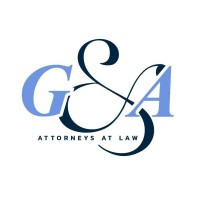East Elmhurst Divorce & Family Law Lawyer, New York
Sponsored Law Firm
-
 x
x

Click For More Info:
-
Law Office of Adrienne D. Edward P.C.
549 Summit Ave Jersey City, NJ 07306» view mapCriminal Defense & Family Law Effective Legal Strategies
Our practice is committed to serving the unique needs of every client. We strive to make you feel heard, valued, and empowered at every stage of the legal process.
201-420-8850
Gehi & Associates
✓ VERIFIEDAn Internationally Renowned Law Firm Based in New York. We handle immigration cases in the United States and all over the world.
Ronald Steven Nir
✓ VERIFIEDRonald Nir has represented individuals and corporations in Criminal Cases for more than 30 years. He has tried to completion well over 250 felony a... (more)
Louis I. Newman
✓ VERIFIEDLouis I. Newman has been a member of the New York Bar since 1968 and has negotiated and tried hundreds of cases, including matrimonial cases which are... (more)
Adrienne D. Edward
✓ VERIFIEDFor 25 years, Attorney Adrienne D. Edward has been offering top-notch legal representation to individuals and families throughout New York and New Jer... (more)
Jack Gladstein
FREE CONSULTATION
CONTACTNicole D. Katsorhis
FREE CONSULTATION
CONTACT Adrienne D. Edward Jersey City, NJ
Adrienne D. Edward Jersey City, NJ Practice AreasExpertise
Practice AreasExpertise




